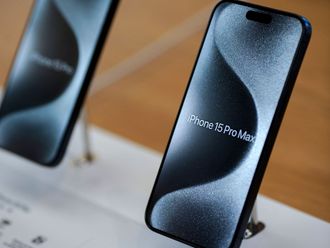Dubai
The proliferation of digital transformation initiatives across the Middle East and Africa is going to spur spending on Internet of Things (IoT) by 19.6 per cent in 2017 to $7.8 billion, an industry expert said.
IoT is defined as the network of devices that are connected to the internet and can be controlled remotely. The drivers behind digital transformation are mobile, video, social, big data, cloud and internet of things.
Wale Babalola, research analyst at International Data Corporation (IDC) MEA, said that the market is forecast to defy the region’s moderate economic outlook as businesses and government entities strive to boost productivity and improve efficiency.
He said that Saudi Arabia and the UAE are leading the charge when it comes to smart cities, so it makes sense that these two countries will account for the highest contributions to overall IoT investment in MEA during 2017, with a combined value of more than $1.6 billion.
The research firm expects the manufacturing, transportation, and utilities industries to see the highest levels of IoT-related spending in 2017 as organisations across these verticals look to digitalise their operations and improve their value proposition across different lines of business.
“The MEA IoT market is becoming increasingly competitive, enabling organisations to source a range of innovative digital solutions aimed at transforming business operations, improving the customer experience, and enhancing employee engagement,” he said.
Manufacturing organisations will lead the way in 2017, with IDC forecasting IoT-related spending of $1.3 billion for this vertical. The ‘manufacturing operations’ use case will account for more than 51 per cent of this investment.
‘Manufacturing operations’ is an IoT use case that supports digitally-executed manufacturing and the way in which manufacturers use intelligent and interconnected input/output tools (e.g., sensors, actuators, drives, vision/video equipment) to enable different components in the manufacturing field (e.g., machine tools, robots, conveyor belts) to autonomously exchange information, trigger actions, and control each other independently.
“Indeed, IoT now offers a myriad of industry-specific solutions that can be easily deployed by organisations in a bid to stay ahead of competition,” he said.
The transportation industry is also forecast to see IoT-related spending of around $1.3 billion in 2017. The ‘freight monitoring’ use case is expected to account for $849 million of this figure, which aptly highlights the increasing importance of monitoring goods and improving productivity. Babalola said that IoT-related spending by MEA utilities to reach $918 million in 2017, with investments around ‘smart grid’ technologies to account for more than 82 per cent of this total. Smart grids are rapidly gaining traction across the region as municipalities increasingly see the value proposition in deploying related solutions in an effort to efficiently distribute resources to their respective end customers.










